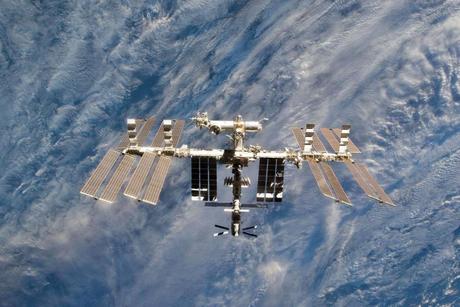
MOSCOW, Nov 17 (NNN-AGENCIES) — Russia admitted to destroying one of its satellites during a missile test, but rejected US accusations that it had endangered the International Space Station.
US officials on Monday accused Russia of a “dangerous and irresponsible” strike on a satellite that had created a cloud of debris and forced the ISS crew to take evasive action.
The move reignited concerns about an escalating arms race in space, encompassing everything from laser weapons to satellites capable of shunting others out of orbit.
The Russian defence ministry said it had “successfully conducted a test, as a result of which the Russian spacecraft ‘Tselina-D’, which had been in orbit since 1982, was destroyed.”
Russia’s Defence Minister Sergei Shoigu later said the launch used a “promising” system that “accurately” struck its target.
“The fragments that formed do not pose any threat to space activity,” he added, as quoted by Russian news agencies.
US officials said they were not informed in advance of the anti-satellite missile test – only the fourth ever to hit a spacecraft from the ground – which generated more than 1,500 pieces of trackable orbital debris.
US Secretary of State Antony Blinken said Monday that the danger was far from over and the debris would continue to threaten satellites and activities on the ISS.
NATO Secretary General Jens Stoltenberg on Tuesday described the test as a “reckless” and “concerning” act.
“It demonstrates that Russia is now developing new weapon systems that can shoot down satellites,” he said at a meeting with EU defence ministers.
French Defence Minister Florence Parly on Twitter lashed out at “space vandals” who were producing dangerous amounts of debris.
Germany’s foreign ministry said it was “very concerned” about the missile test and called for urgent measures to “strengthen security and confidence”.
The Russian military said it was carrying out planned activities to strengthen its defence capabilities, but denied that the test was dangerous.
“The United States knows for certain that the resulting fragments, in terms of test time and orbital parameters, did not and will not pose a threat to orbital stations, spacecraft and space activities,” it said.
The confirmation of the US claims came moments after Russian Foreign Minister Sergei Lavrov had denied that Moscow had endangered the ISS.
“To declare that the Russian Federation creates risks for the peaceful use of space is, at the very least, hypocrisy,” Lavrov told a press conference in Moscow, adding that “there are no facts” behind the claims.
The Russian foreign ministry later said in a statement that the test was carried out in “strict accordance with international law” and “was not directed against anyone”.
NASA said the crew aboard the orbital outpost – currently four Americans, a German and two Russians – were woken up and forced to take shelter in their return ships.
The satellite was a Soviet signals intelligence satellite that has been defunct for several decades.
Earlier on Tuesday, Russia’s Roscosmos space agency said its “automated warning system for dangerous situations” was continuing “to monitor the situation in order to prevent and counter all possible threats to the safety of the International Space Station and its crew”.
“For us, the main priority has been and remains to ensure the unconditional safety of the crew,” Roscosmos said in a statement.
Roscosmos chief Dmitry Rogozin said he held a “detailed” phone call with NASA chief Bill Nelson on Tuesday evening.
“In short … we are moving on, ensuring the safety of our crews on the ISS and making joint plans,” Rogozin said on Twitter.
Nelson had said on Monday he was “outraged” by the “irresponsible and destabilising action”.
Yury Shvytkin, deputy chairman of the Russian lower house of parliament’s defence committee, denied Russia was militarising space.
“We have been and are against the militarisation of space,” Interfax news agency quoted him as saying.
Anti-satellite weapons (ASATs) are high-tech missiles possessed by only a handful of nations.
India was the last to carry out a test on a target in 2019, an incident criticised by the US and others after hundreds of pieces of “space junk” were created.
The US shot down a satellite in 2008 in response to China demonstrating a similar knockout in 2007.
Last year, Britain and the US accused Russia of testing a “nesting doll” satellite that opened up and released a smaller craft to stalk an American satellite.
Despite the tension, the US and Russia have maintained strong space ties since the end of the Cold War, cooperating closely on the ISS, which they built together. — NNN-AGENCIES




